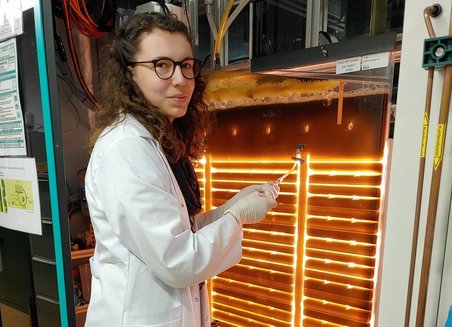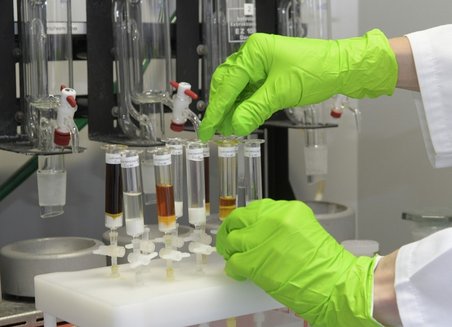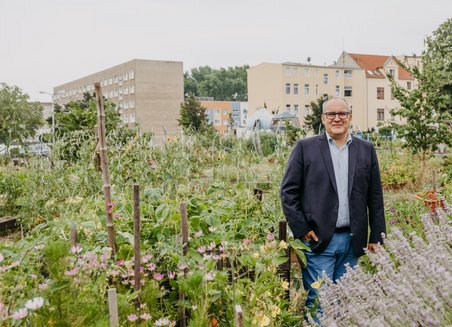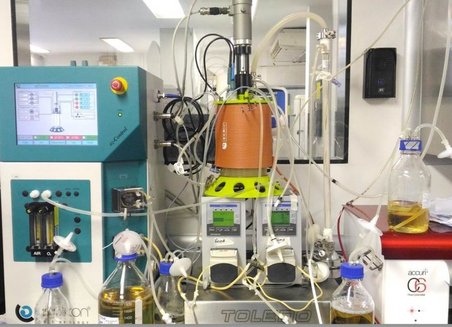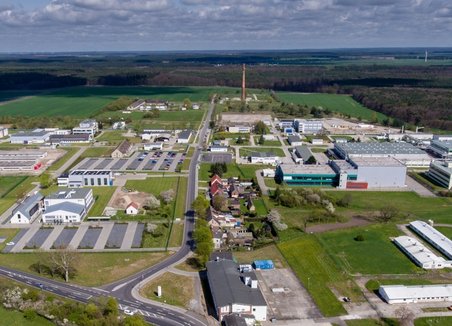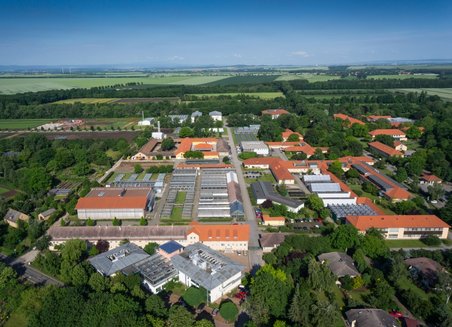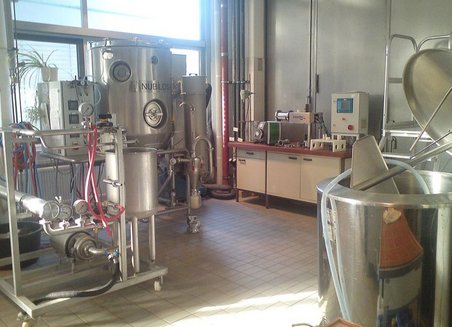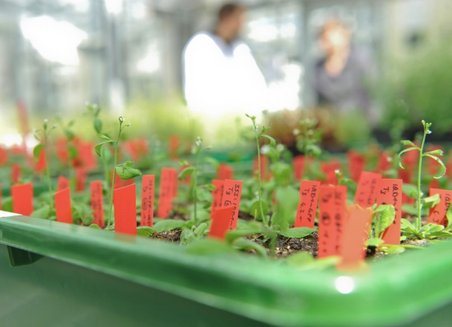Research & Development
Research and innovation have a long tradition in Saxony-Anhalt: In 1654 the universal genius Otto von Guericke experimented with the hemisphere experiment to visualize the vacuum, 100 years ago the foundations of seed breeding were laid here and in the 20th century the first colour film was developed here as well. Today, Saxony-Anhalt is the centre for pilot plants in the field of bioeconomy.
Center for Pilot-Plants
Fraunhofer Center for Chemical-Biotechnological Processes CBP
In view of the finite nature of fossil resources, the growing demand for resources and climate change, the use of renewable raw materials has acquired great significance. The Fraunhofer Center for Chemical-Biotechnological Processes CBP in Leuna focuses on the combination of biotechnological processes with chemical processes, and with its pilot scale technical equipment it closes the gap between the laboratory and industrial implementation.
Unparalleled research density
Saxony-Anhalt has one of the densest research landscapes: Six Fraunhofer Institutes, five Leibniz Institutes, three Max Planck Institutes, two Helmholtz Centres, two universities and eight universities of applied sciences are located here.
Saxony-Anhalt has one of the densest research landscapes in Germany - and our research landscape relies on collaborative research.
Existing collaborations between the Martin Luther University Halle-Wittenberg (MLU) and non-university research institutions have already resulted in centres such as the Science Campus for Plant-Based Bioeconomy, the Interdisciplinary Centre for Crop Research or the German Centre for integrative Biodeiversity Research (iDiv).
The establishment of the BioEconomy Cluster has also strengthened the country's bioeconomy research area. The cluster's partners include many research institutions, including
- Fraunhofer Center for Chemcal-Biotechnological Process (CBP)
- Fraunhofer Pilot Plant Center for Polymer Synthesis and Polymer Processing (PAZ)
- Fraunhofer Institute for Mechanics of Materials (IWM)
- Martin Luther University (MLU)
- Deutsches Biomasseforschungszentrum (German Biomass Research Centre),(DBFZ)
- Helmholtz Centre for Environmental Research (UFZ)
At the Research Center Dynamic Systems (CDS) of the Otto-von-Guericke-University Magdeburg (OvGU) scientists are working on gaining a fundamental understanding of complex dynamic systems in biomedicine, chemical production systems and processes of energy conversion. Political scientists in Magdeburg are also working on bioeconomics, for example in the Bio-Ökopoli project.
However, it is not only the young academics in Saxony-Anhalt who are being cared for; the Gatersleben biotechnology campus will now also be offering vocational training in "plant technology" in addition to master craftsman training.
Universities and non-university research institutes
- Martin-Luther-University Halle-Wittenberg
- Otto-von-Guericke-University Magdeburg
- Fraunhofer Institute for Microstructure of Materials and Systems IMWS
- Fraunhofer Institut for Cell Therapy and Immunology IZI
- Max Planck Institut for Dynamics of Complex Technical Systems Magdeburg
- Leibniz Institut for Plant Biochemistry
- Anhalt Univiversity of Applied Sciences
- Magdeburg-Stendal University of Applied Sciences
Transfer and Research Infrastructur
- Fraunhofer Center for Chemcal-Biotechnological Process (CBP)
- Fraunhofer Pilot Plant Center for Polymer Synthesis and Polymer Processing (PAZ)
- Bio Centre at Martin Luther University
- Helmholtz Centre for Environmental Research (UFZ)
- ppm Pilot Pflanzenöltechnologie Magdeburg e. V., Pilotanlagenzentrum für Pflanzentechnologie und Proteinsynthese
- Kunststoffkompetenzzentrum KKZ Halle-Merseburg
- Science Campus for Plant-Based Bioeconomy
- Infra-Zeitz Servicegesellschaft mbH
- Chemiepark Bitterfeld-Wolfen GmbH
- InfraLeuna GmbH






